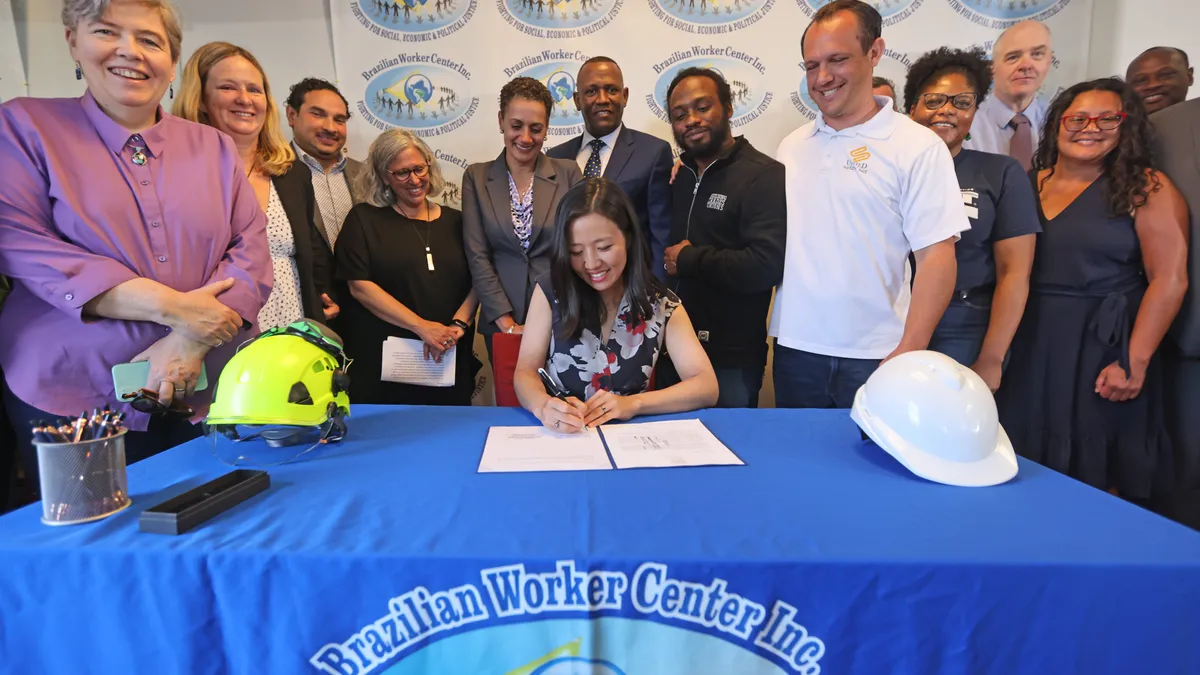Dive Brief:
- A new construction safety ordinance in Boston will require all construction and demolition projects permitted through the city’s Inspectional Services Department to submit a site safety affidavit.
- The move strengthens enforcement by city officials for violations and requires all building projects of 50,000 square feet or more, or demolitions on buildings of four or more stories, to develop detailed safety plans focused on accident prevention, according to a press release.
- Boston Mayor Michelle Wu signed the new Construction Safety Ordinance June 1 following a number of accidents on construction sites in Boston.
Dive Insight:
The construction safety ordinance follows several high-profile accidents in Boston’s construction industry.
Every worker deserves to go home.
— Mayor Michelle Wu 吳弭 (@MayorWu) June 2, 2023
Our Construction Safety Ordinance will require that all construction & demolition projects permitted through @ISDBoston submit a Site Safety Plan Affidavit, ensuring that all our workers can stay safe. pic.twitter.com/h7zJUaGAb0
A worker died in a fall on a project at Mass General Hospital in January. Previously, Boston-based Suffolk voluntarily paused all work in the city in May 2022 after two jobsite accidents injured workers. In 2021, the construction fatality rate in Boston was two and a half times the national average, according to the press release.
The ordinance was developed in collaboration with construction unions, worker advocates, construction companies and OSHA, according to the release.
Three key elements of the law include:
- Contractors and builders must submit safety plans as part of the construction permit application for any building over 50,000 square feet, and for demolition projects in buildings with four or more stories.
- An OSHA-trained safety coordinator must be present on the construction site.
- Builders must provide safety orientations to new workers and hold pre-shift meetings to explain potential risks during the work.
Other policies
The city passed a policy last August for developers to submit minority and women workforce participation goals on private projects.
The measure requests applicants filing for residential and nonresidential projects over 20,000 square feet to submit plans that include economic participation, employment and management roles for people of color, women and certified minority- and women-owned businesses within the scope of their projects.
While that policy wasn’t binding at the time, officials said it could eventually be worked into the city’s zoning requirements.














